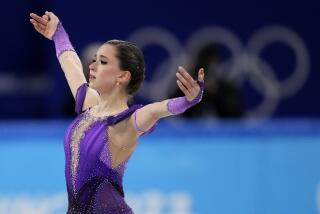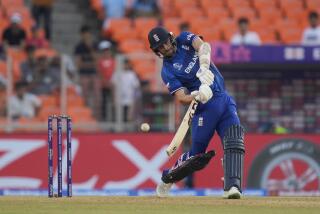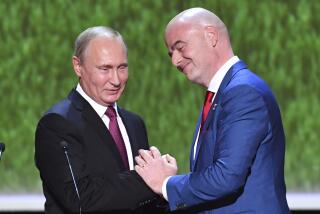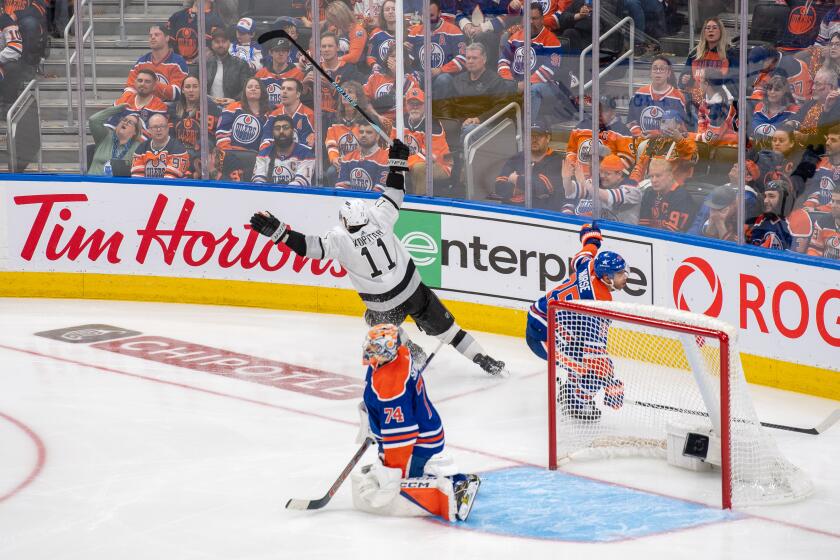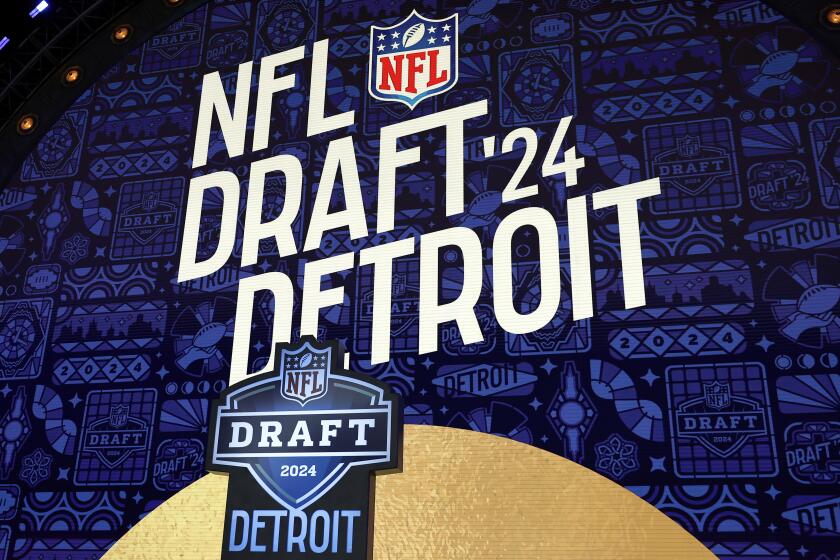Olympic Committee decides against banning all Russian athletes from Rio Games
With the 2016 Summer Games drawing near, Olympic leaders now find themselves facing questions — if not outright criticism — over their decision not to ban Russia from the competition.
The International Olympic Committee had felt the pressure to take action in response to allegations of systemic doping among Russian athletes.
Yet, on Sunday, the IOC’s executive board asked the international federations that govern each sport to do most of the work in deciding who is eligible for Rio de Janeiro next month.
The IOC did, however, lay down strict ground rules, suggesting that Russians should be presumed guilty unless they can prove otherwise.
“This may not please everybody on either side,” IOC President Thomas Bach acknowledged in a conference call. “But still, the result today is one which is respecting the rules of justice.”
Reaction was immediate with anti-doping officials and athletes from other countries expressing skepticism.
“The IOC has refused to take decisive leadership,” said Travis T. Tygart, head of the U.S. Anti-Doping Agency. “The decision regarding Russian participation and the confusing mess left in its wake is a significant blow to the rights of clean athletes.”
Hours after the announcement, the International Tennis Federation said it expects all eight of Russia’s nominated players to compete in Rio. Olympic experts predicted additional Russians will be approved.
The exact number will depend on the 28 international federations whose sports comprise the Summer Olympics.
If there is strong evidence of cheating, they could follow the lead of the IAAF, the governing body for track that suspended all Russians from its sport last year. That ruling was recently upheld by the Court of Arbitration for Sport.
“We know how hard it is emotionally and rationally to get the process right,” IAAF President Sebastian Coe said Sunday, adding the IAAF stands ready to advise other federations.
Sports such as swimming and cycling might choose a different path, dealing with each athlete individually.
But that could create a legal morass, with scores of banned athletes filing appeals and arbitrators given little time to rule before the Games begin on Aug. 5.
“This is a very ambitious timeline,” Bach said. “But we have no choice.”
Russia has been under scrutiny since last November when the World Anti-Doping Agency, or WADA, published allegations of organized cheating among athletes, coaches and officials in Russian track and field.
The country’s sports leaders subsequently acknowledged a culture of doping that dates to the Soviets and East Germans of the Communist era.
This time, officials promised to enact reforms, overhauling their track federation’s leadership, subjecting athletes to additional testing and inviting international observers into their anti-doping operations.
But a second WADA investigation in spring found continued resistance to testing. And a third report last week alleged that workers in Russian drug-testing labs had swapped clean samples for dirty ones to help Russian athletes evade detection.
With WADA and others calling for an outright ban, the IOC held two emergency teleconferences last week.
Alexander Zhukov, president of the Russian Olympic Committee, took part in Sunday’s call, emphasizing that his athletes have been monitored by independent testers and labs in recent months.
“Russian athletes who participated in different competitions in all sports have submitted more than 3,000 doping samples,” the IOC concurred. “The vast majority of the results were negative.”
From the start, the IOC had seemed reluctant to issue a ban; it had never before excluded a country for doping and, unlike the IAAF, had no established legal precedent.
Committee members had hinted at their preference for case-by-case adjudication.
John Coates, an IOC vice president from Australia, said on Sunday: “We did not want to penalize athletes who are clean with a collective ban and therefore keeping them out of the Games.”
So the committee chose to establish stern guidelines for the federations to follow.
Unlike athletes from other countries, any Russian who has tested positive will now be denied eligibility, even if the athlete has served his or her punishment. That would exclude such previous medalists as swimmer Yulia Efimova, weightlifter Tatiana Kashirina and cyclist Olga Zabelinskaya.
As if to set an example, the IOC announced it had denied an application from Russian runner Yulia Stepanova, who had helped investigators uncover cheating in her country but had been previously sanctioned for doping.
Russians hoping to compete in Rio must also submit to increased out-of-competition testing, the IOC said.
Vitaly Mutko, the Russian sports minister, called the standards “very tough” but added that he believes “the majority of our team will comply.”
WADA, while vowing to continue its cooperation with the IOC, expressed disappointment in a decision it said “will inevitably lead to a lack of harmonization, potential challenges and lesser protection for clean athletes.”
The response from athletes was sharper.
“What sort of message does this send out?” tweeted Chris Hoy, the six-time Olympic champion in cycling from Britain. “Surely IOC’s job is to make crucial decisions rather than passing the buck.”
ALSO
The Olympics are coming, but Brazil, beset by troubles and gloom, yawns
Brazil is in turmoil, an impeachment trial looms, and still, Dilma Rouseff laughs
Brazilian police arrest 10 suspected of planning for terrorist attack around Olympics
UPDATES:
7:30 p.m.: Updated with details throughout.
10:25 a.m.: This article has been updated with Times reporting.
7:51 a.m.: Updated with details throughout.
This post originally published at 7:10 a.m.
More to Read
Get our high school sports newsletter
Prep Rally is devoted to the SoCal high school sports experience, bringing you scores, stories and a behind-the-scenes look at what makes prep sports so popular.
You may occasionally receive promotional content from the Los Angeles Times.
